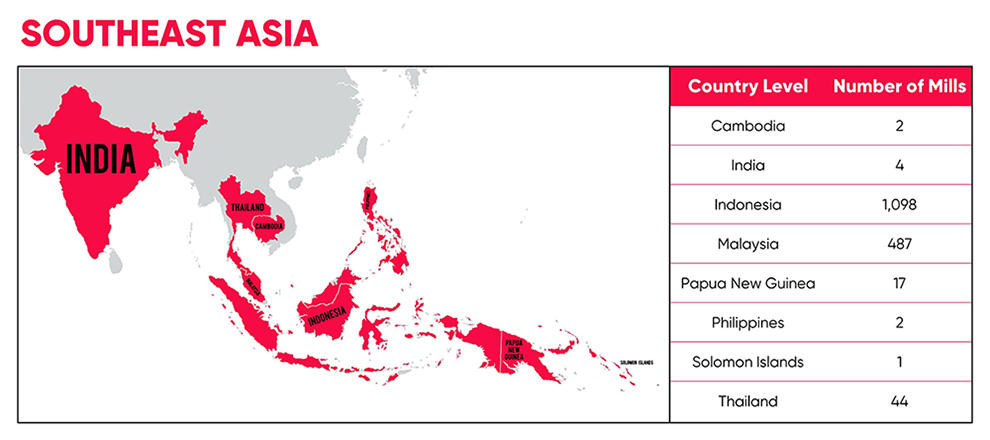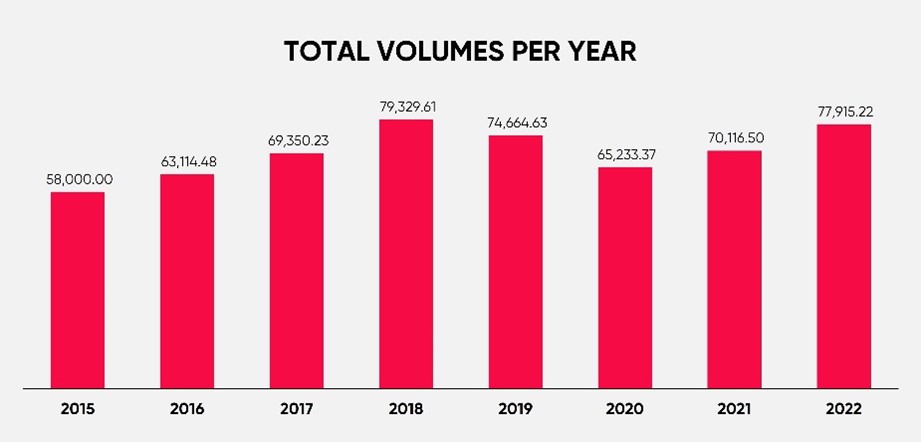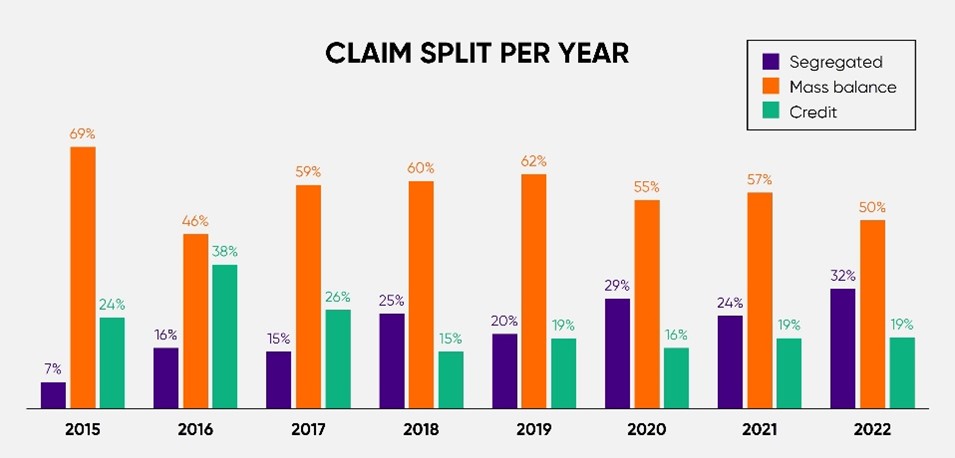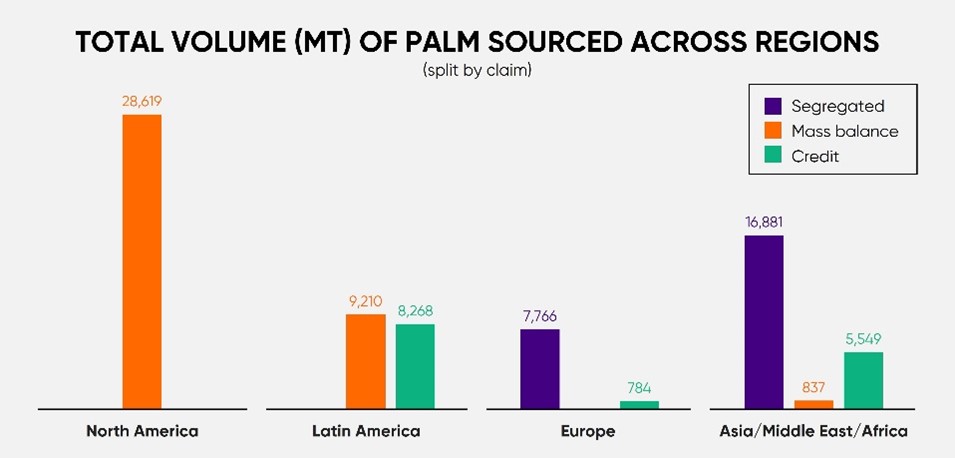
Responsibly Sourced Palm Oil
 |
Committed to procuring 100% physically certified palm oil by the end of 2025
Kellanova uses less than 0.1% of the global palm oil produced. Despite our small footprint in this commodity, Kellanova is committed to responsibly sourcing palm oil, building on the work begun in 2009 by Kellogg Company. As a global company, we have a responsibility to engage our suppliers, supply chain and industry to drive faster, more effective action to protect the environment and advance the cause of human rights. We continue to evolve our strategies and actions to incorporate best practices and learnings from our own experiences, as well as those of our suppliers, peer companies and industry organizations.
As Kellogg Company, the Global Palm Oil Policy and action plans were updated in 2020 to reflect key interventions that can drive impact at scale and support sector alignment and best practices.
Our Commitment
As part of our Kellanova Better Days™ Promise goal to create better days for 4 billion people by the end of 2030 and to Responsibly Source our Priority Ingredients, we are committed to procuring 100% physically certified palm oil by end of 2025.
Our Approach
Kellanova is committed to sourcing palm oil produced in a manner that is environmentally, socially and economically sustainable. We also support the advancement of sustainable palm oil production through direct investment in on-the-ground projects and collaborative industry involvement. While current certification schemes have been instrumental in expanding and supporting sustainable palm oil production, we continue to see issues like deforestation and human rights violations plague this industry. In recognition of this, we are committed to supporting sustainable palm oil production through a holistic and action-oriented platform that includes:
- Certification In Our Own Operations – Through our commitment to source 100% physically certified palm oil, we support the need for increased market demand of certified material to continue to incentivize palm suppliers to produce and purchase sustainable palm material. As part of this process, we will also refine our sourcing practices to build strong alliances with key suppliers to foster investment and coordination to achieve long-term, sustainable transformation in the sector.
- Supply Chain Management - Building on Kellogg’s many years of partnership with Proforest, beginning in 2019, Kellogg and Proforest began providing our direct Tier 1 suppliers annual Supplier Scorecards. The goal is to support the advancement of reporting on the sustainability of their palm oil operations, facilitate communication and provide recommendations to close gaps in performance. Based on supplier responses and publicly available information searches, Proforest compiles Scorecards and Factsheets for small to medium sized palm suppliers. Assessed metrics include alignment to Kellogg expectations across several areas including policies, timebound implementation plans, supply chain engagement and management, grievances and publicly available reporting.
This enhanced, targeted effort for lower volume/smaller suppliers is to provide extra guidance and support to ensure our entire palm oil supply chain is improving in the overall sustainability of palm sourcing. We also want to ensure that those who may need more support to continue advancement in key areas have access to additional resources as needed.
In 2020, we began to utilize the Palm Oil Transparency Coalition (POTC) survey and engagement process to reduce the reporting burden of our direct suppliers, specifically those already reporting to POTC. Suppliers are assessed in five key areas: Deforestation, Transparency, Governance, Labor, and Communities. Within each area, there are a set of detailed technical questions that are used to determine an overall percentage of compliance with assessed criteria.
- Supporting Smallholder Farmers - Smallholders and forest communities contribute 40% of the global palm oil supply but are under-supported in many supply-chain programs. While we support and utilize certified palm oil, we believe that certification is only part of the solution to tackling issues within the palm oil industry like deforestation, human rights violations and increasing support for smallholders and forest communities. Smallholder operations have been shown to affect supply chain issues, such as deforestation, but they are still not provided with the support needed to transform their practices to be more sustainable and efficient. Even though they contribute roughly 40% of globally produced palm oil, smallholder and forest communities continue to be underrepresented and under supported. Due to a lack of access to inputs such as fertilizer and high-quality seedlings and a lack of resources for best management practices such as pest control and cultivation techniques, smallholder operation’s yields are 50% lower than large-scale commercial companies.
This is why we partner with Wild Asia, an impact-driven social enterprise based in Malaysia, as part of our commitment to support the improvement of smallholder livelihoods and increase their access to market through formal certification. This ongoing engagement integrates our objectives with the work Wild Asia has been doing through their Small Producer Inclusivity & Resilience Alliance (SPIRAL) and Wild Asia Group Scheme (WAGS) programs by funding increased farmer reach, crop diversification to increase income, regenerative agricultural practices to improve yields and providing support for a path to certified operations.
By partnering with Wild Asia, we support sourcing practices that are inclusive of smallholders, sustainable, NDPE-compliant and have a positive impact.
- Industry Engagement – We work on multiple fronts to make sustainable palm oil the norm, not the exception. Kellanova is an active member of the Palm Oil Transparency Coalition (POTC), the Consumer Goods Forum Human Rights Coalition Palm Oil workgroup, the Palm Oil Collaboration Group, and Kellogg Company is a founding member of the North American Sustainable Palm Oil Network. We participate in several other palm oil related industry group workstreams and maintain relationships with global and local NGOs.
Supplier Performance
Our suppliers are the key to achieving our commitments for sourcing sustainable palm oil and doing our part to support industry change in the palm oil sector. It is only through these partnerships and collaborative actions that we can achieve our collective goals to work toward eliminating the social and environmental issues present within our supply chains.
Sourcing Regions
Knowing where our procured palm material is sourced is an important element of our supply-chain-management strategy. In the absence of full, verifiable traceability from suppliers and due to the use of RSPO schemes such as mass balance and credits, we are unable to pinpoint the exact mill or plantation that each MT of palm material comes from. We can, however, gain a general sense of our supply chain exposure by country level, and in some cases regionally. This information helps us act on potential grievances that arise in our upstream supply chain and understand where our resources can best be used to support targeted on-the-ground programs such as our work with Wild Asia and smallholders.

Our Journey
Kellanova is a new company with a foundation that’s more than a century long. We are committed to carrying forth the legacy of Kellogg Company, who led with purpose to create a positive impact for people and planet. Like our name signals, we’re building on that legacy of doing good, built over the previous 117 years, while looking ambitiously toward the future.
Progress reported below is for Kellogg Company through the end of 2022. Kellanova will report on progress toward our commitments in our initial Social and Environmental Report that we will issue in 2025.
- In 2019, Kellogg Company, became the first manufacturer member of the Palm Oil Transparency Coalition (POTC).
- In 2020, Kellogg launched a commitment to responsibly source 100% physically certified palm oil by the end of 2025. Progress can be viewed below.
- In July 2020, Kellogg partnered with Wild Asia, an impact-driven social enterprise based in Malaysia, as part of our commitment to support the improvement of smallholder livelihoods and increase their access to market through formal certification.



* Kellogg Company did not, nor does Kellanova, directly source from all 1,754 mills. This number is based on the mill lists provided by each supplier for all reported volumes FY2021, and the number of mills associated with each supplying refinery. Without segregated or IP palm oil, it is not possible to know the exact mills or volumes that Kellogg sources from. Further information can be found in our 2021 Mill List.